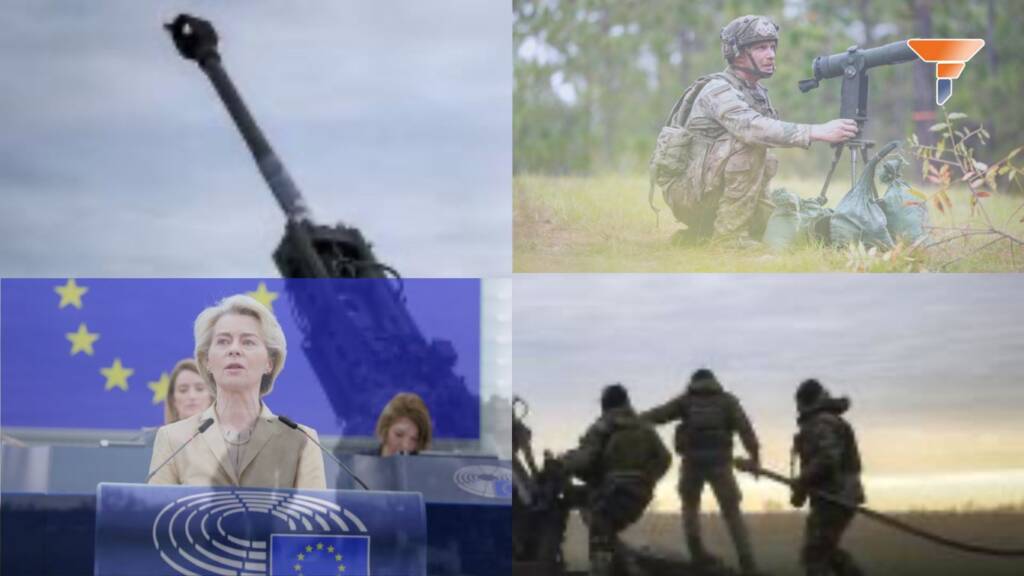The European Union (EU), in an alarming statement, has advised its citizens to stockpile essential supplies sufficient for at least 72 hours. The advisory to 450 million inhabitants cited increasing risks of war, cyberattacks, climate change, and disease.
On Wednesday, EU Commissioner for Crisis Management Hadja Lahbib sent shockwaves to European citizens by giving a warning, which, according to her, reflects a broader strategy to improve civil readiness across the bloc. Though she did not mention Russia specifically, she said that the Ukraine war threatens European security.
Lahbib stated, “For three years in Ukraine, we have seen a battlefield of bombs, and bullets, drones, fighter planes, trenches and submarines.Yes, our European security is directly threatened by this,”
Spreading Panic
“We want people to be ready, not to panic,” Lahbib said. “Preparedness is not fearmongering – it is common sense in a time of uncertainty.”
Under the strategy, the EU is advising households to keep essential supplies, such as non-perishable food, bottled water, flashlights, batteries, first-aid materials, and key documents. Citizens are also encouraged to have access to shortwave radio in case of power or communication outages. This advisory looks like the EU is preparing its citizens for war or just hyping the current geopolitical situation by creating a sense of panic to intensify hate towards Russians.
The EU also plans to develop a strategic reserve of key war resources, such as fighter aircraft, medical transport, mobile hospitals, and stockpiles of protective equipment for chemical, biological, radiological, and nuclear incidents.
EU Commissioner for Crisis Management further added, “Today’s threats facing Europe are more complex than ever, and they are all interconnected,” Lahbib said. “From war on our borders to increasingly frequent climate disasters, the EU must be ready to face the unexpected,”
Also Read: EU prepares to shut Trump and US out of NATO
Narrative against Russia
Almost every EU nation has persistently spread the misconception about Russia as a threat to regional security. Germany, France, Poland, and Finland, along with the Baltic states, have raised concerns over alleged Russian cyberattacks, disinformation campaigns, and political interference. These nations have constantly spread a sense of fear among their citizens and leaders by citing the Ukraine conflict as an example of aggressive behaviour that poses a military threat to the EU. However, these nations have never mentioned multiple red lines highlighted by Russia not to expand NATO eastwards.
Russia, too, has consistently denied any intention to attack NATO countries or the EU. Even Russian President Putin has rejected the created threat by the EU as “nonsense” meant to scare European populations and increase military budgets.
The program is similar to long-standing procedures in nations with more developed emergency plans and civil defence preparations, such as Finland and Sweden. For instance, the ‘If Crisis or War Comes’ manual from Sweden was recently revised to include contemporary scenarios, such as how to handle nuclear threats.
In order to coordinate cross-border reactions and guarantee the continuity of vital services, such as healthcare, energy, and telecommunications, the Commission’s new proposal calls for the establishment of an EU-level crisis hub. However, if these threat perception reached to Putin’s mind and if he thinks these threats are serious. Russia will not step down to attack Europe. Russia is a formidable military power with Nuclear Weapon hence, creating these kind of threat perception may lead to direct war between Russia and the EU.
